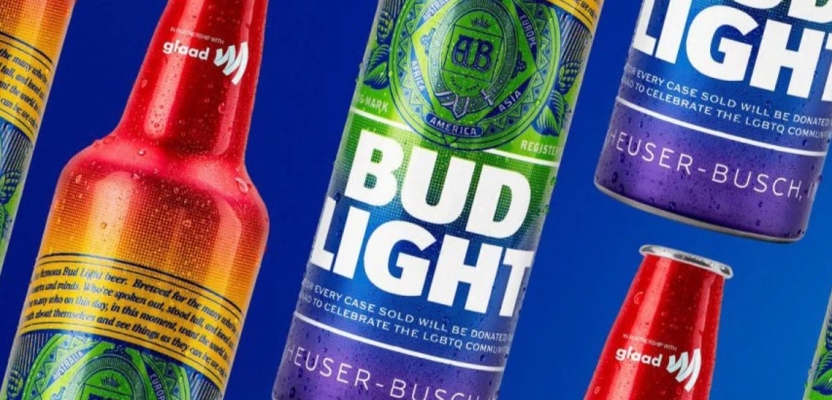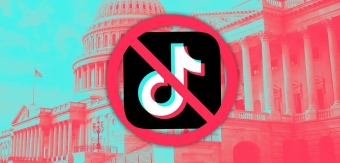In an increasingly polarised world where every rogue tweet could potentially ignite a minor culture war, brands are constantly walking on eggshells so who could blame them for taking the easy path? The desire to maintain a neutral stance in the face of controversy has become a strategic imperative for many companies in recent years, but in many ways, this overly cautious approach is tearing at the seams of the media business and cutting at the fabric of creativity.
The Rise of Corporate Caution
We’re not living in an age of unfettered freedom anymore and brands can’t get away with a lot of the things that might have been de rigueur in the 90s. The digital age has amplified every voice, turning even the most benign statements into potential flashpoints. As consumers increasingly align their purchasing decisions with their values, brands are being pulled into social and political conversations—often against their will.
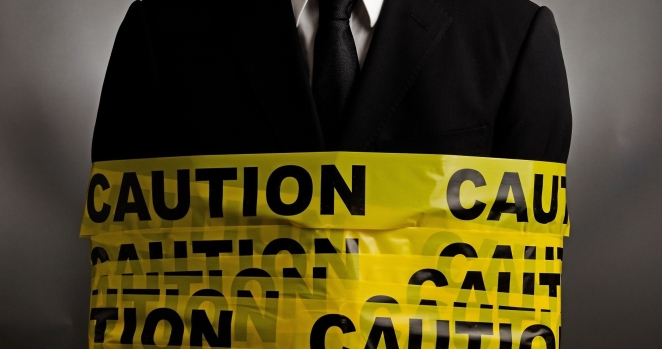
While some brands have embraced the role of social commentator, many others are choosing to retreat into the wings. The pervasive fear of offending one side of the political spectrum and facing a backlash has led to an era of extreme corporate caution. Companies are now more likely to pull ads, cancel partnerships, or distance themselves from media outlets that may attract controversy, even at the cost of cutting ties with lucrative platforms and ideas.
The Impact on Media Businesses
Traditional and digital media outlets alike rely heavily on advertising revenue, much of which comes from brands that are now more risk-averse than ever. As brands shy away from content that could be deemed controversial, media companies are starting to feel the squeeze.
In an attempt to remain palatable to advertisers, many media outlets have begun to self-censor or steer clear of certain topics, which naturally leads to a more homogenised and neutered media landscape, where nuanced discussions are sacrificed for the sake of saving face. Ironically, the very platforms that once thrived on the free exchange of ideas are now stifled by the need to avoid triggering the next social media storm. In essence, nobody with any skin in the game seems to want to take a side anymore and nowhere is that truer than in the case of the LGBTQ+ community.
Avoiding or Embracing the Culture Wars
In recent years, the LGBTQ+ community has increasingly found itself at the epicentre of culture wars, particularly in the United States and other Western nations. This heightened focus has often placed brands in the crossfire as they attempt to navigate their support for LGBTQ+ rights in a politically charged environment. The controversy surrounding LGBTQ+ issues, such as transgender rights and representation, has become a flashpoint in broader societal debates, drawing intense reactions from both supporters and detractors. In this regard, I personally remain convinced there is a “right” and a “wrong” side of history here but below, I’ll shine a light on a few of the brands that decided to either stand behind the community or bow to right wing backlash.
Bud Light: One of the most prominent examples of in 2023 was Bud Light's collaboration with transgender influencer Dylan Mulvaney. The partnership was intended to celebrate inclusivity, but it sparked a massive backlash, particularly from conservative circles, leading to widespread boycotts. The controversy resulted in a sharp decline in sales, with Bud Light losing its position as America's top-selling beer. This incident sent shockwaves through the industry, making many brands wary of engaging in similar partnerships.

The North Face: In 2023, The North Face faced intense criticism from conservative groups for its Pride campaign featuring drag queen Pattie Gonia. Despite the backlash, the company initially stood by its campaign, emphasizing its commitment to inclusivity. However, in 2024, The North Face scaled back its Pride initiatives, likely in response to the previous year's controversies, reflecting the growing pressure on brands to avoid divisive issues.
Starbucks: The coffee giant found itself embroiled in a controversy in 2023 when its Workers United union accused the company of restricting Pride decorations in several stores. This led to a significant strike involving thousands of employees. Although Starbucks denied any corporate directive to limit Pride displays, the situation highlighted the challenges brands face in navigating cultural issues. In 2024, Starbucks responded by reinforcing its commitment to LGBTQ+ inclusivity, yet the incident remains a cautionary tale for companies trying to balance corporate policies with social activism.
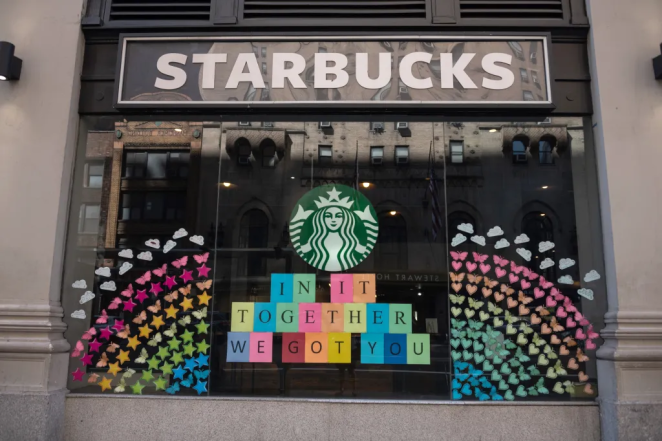
Target: In 2023, Target faced a significant backlash over its Pride Month merchandise, particularly items that were inclusive of the transgender community. The intense reaction, which included threats and acts of vandalism, led Target to scale back its Pride offerings in 2024. The company reduced the visibility of Pride displays and opted not to sell Pride apparel for children in many of its stores, illustrating a clear retreat in the face of potential controversy.
Skittles: Known for its colourful and bold Pride campaigns, Skittles took a step back in 2024 after facing criticism the previous year. In 2023, the brand’s Pride packages featured messages like “Black Trans Lives Matter,” which stirred controversy. In response, Skittles reverted to a more generic six-colour rainbow packaging in 2024, avoiding the explicit political messages that had previously caused a stir.
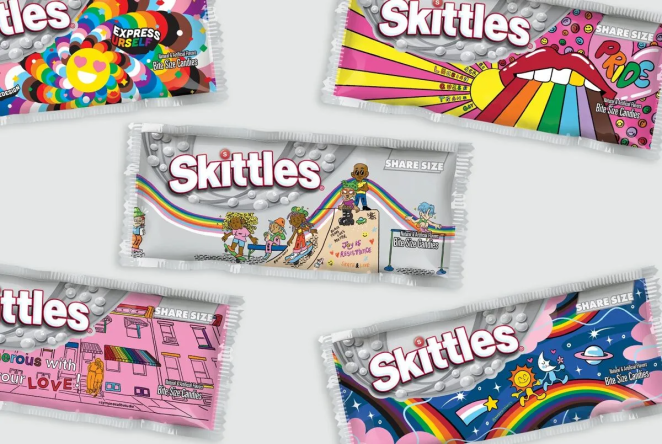
Calvin Klein: In a move that reflects the broader trend of brands pulling back from potentially controversial campaigns, Calvin Klein’s 2024 Pride collection did not feature any out transgender or nonbinary models, a significant departure from previous years. The campaign was instead headlined by actors Jeremy Pope and Cara Delevingne, both queer but less likely to provoke controversy.
The Way Forward
Playing it safe may seem like the best strategy, but it comes with its own set of risks. In trying to appeal to everyone, brands often end up alienating consumers who crave authenticity and boldness. The rise of purpose-driven marketing has shown that consumers are drawn to brands that take a stand, even if it means courting controversy. Yet, the fear of potential backlash keeps many companies from fully committing to this approach.
The result is a paradox: brands are pressured to engage with cultural conversations yet are paralyzed by the fear of saying the wrong thing. This indecision not only weakens brand identity but also stifles creativity in the media they support.
So, what’s the solution? For both brands and media outlets, the key lies in striking a balance between caution and courage. Brands need to recognize that avoiding controversy entirely is not a sustainable long-term strategy. Instead, they should focus on aligning with causes and platforms that genuinely reflect their values, even if it means taking a stand on contentious issues.
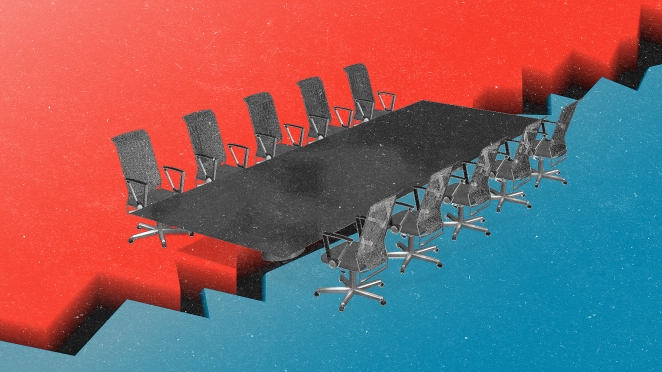
Media companies, on the other hand, must resist the urge to self-censor to appease advertisers. The strength of media lies in its diversity of thought and willingness to tackle difficult subjects. By fostering an environment where brands feel confident in supporting a range of content, media outlets can ensure that they remain vibrant and relevant.
Ultimately, the relationship between brands and the media must evolve. The current model, where fear of controversy dictates strategy, is unsustainable. Brands must find the courage to embrace the complexities of modern discourse, and media companies must stand firm in their commitment to providing a platform for diverse perspectives. Only then can both industries thrive in an era defined by culture wars.

